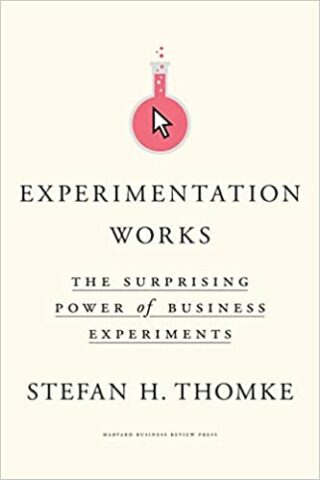A culture of experimentation in 3 steps
Trying out and assessing the consequences of different possible options and making mistakes and starting over seem to come naturally for small companies. Decision-making gets more complicated, however, within complex organizations used to traditional management methods. But the driving forces of a culture of experimentation remain the same, no matter the organization: trust, a desire to learn and humility.

Experimentation works, the Surprising Power of Business Experiments
de Stefan H.Thomke, (Harvard Business Review press, 2020) et « Développer une organisation basée sur l’expérimentation », (collectif, Facebook IQ, 2019).
1. Create a state of mind that encourages curiosity
A company that experiments successfully is first and foremost a company that wants to learn. In building a culture of experimentation, the first reflex to develop is the desire to try out new things.
Redefine failure:
Although it is never nice to discover that one of your assumptions was invalid, it shouldn’t callinto question your ability to get things right next time.
- Do not view failure as something negative, but see it rather as a simple step in a learning process. Talk in terms of a hypothesis that has been refuted rather than a mistake that has been made. These different phrasings open up different perspectives: testing new hypotheses in one case, tracking down the wrong move in the other. And they will have different effects on team morale!
- Draw inspiration from baseball: work out the “batting average” of your experiments so you can put failure and success into perspective. In baseball, the top players have a batting average of 300, meaning they have struck 300 hits in 1,000 at bats. In other words, they succeed in a third of cases – which is an excellent example for you to keep your feet on the ground!
Do not trust your intuition AND encourage others to explore their intuitions:
Even if you are thoroughly convinced that your ideas are good, always take care to test them in the field! On the other hand, this does not mean that you should banish inspiration. On the contrary, it is to your advantage to highlight intuitions as a source of hypotheses to explore.
© Copyright Business Digest - All rights reserved




